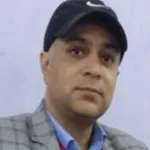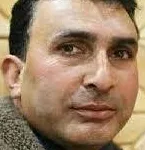Last week, the Jammu and Kashmir government formally took over the functioning of 215 schools run by the Falah-e-Aam Trust (FAT), an affiliate of the banned Jamaat-e-Islami (JeI). The decision, though expected, has triggered a political storm, with sections of the Kashmiri political class attempting to portray it as an outright ban on education for tens of thousands of children. This attempt to mislead is both unfortunate and dangerous, because it politicizes education and obscures the central fact: these schools will continue to function, but with transparent, accountable management under the law.
The government’s action is rooted in the Jammu and Kashmir School Education Rules of 2010, reinforced by SRO 292 of 2018 and SO 177 of 2022. It is, therefore, a lawful administrative measure rather than a draconian clampdown. The district magistrates/ deputy commissioners concerned have been entrusted with overseeing the institutions until fresh managing committees are established. The process is not about shutting down schools; it is about ensuring that the education sector in Jammu and Kashmir is not exploited for political or ideological ends.
The Falah-e-Aam Trust was set up by Jamaat-e-Islami in 1972 as an educational wing with a benign name but a deeper political mission. Over the decades, FAT schools mushroomed across Kashmir and even parts of Jammu, embedding themselves in local communities. By 2022, when the government began scrutinizing FAT’s operations, the trust was running 215 schools, catering to nearly 60,000 students and employing about 4,000 teachers and staff. To the casual observer, these schools resembled any other private institutions offering basic education.
But critics long argued that the underlying intent was not purely academic. Jamaat, banned in 2019 for its separatist leanings and ideological support base for terrorism, was accused of using FAT schools to shape young minds in line with its political vision. Even if such claims were uneven across institutions, the perception was strong enough for the government to review whether the education of children could be left in the hands of an organization outlawed for anti-national activities.
And here lies the most important question: how can a banned organization be allowed to indirectly run schools in the first place? If Jamaat is not permitted to hold rallies, run offices, or operate financial channels because of its extremist leanings, then why should it be trusted with shaping the minds of children? No state worth its name can allow this contradiction.
By taking over these schools, the government has only closed a loophole that allowed a banned group to continue exercising influence under the garb of education. This is not punishment for children or teachers; it is a correction long overdue.
Predictably, some Kashmiri politicians have tried to twist the government’s move into a narrative of victimhood. They argue that the state is “banning schools” and “denying children their right to education.” This rhetoric is both misleading and opportunistic. The schools are not being closed; they are being stabilized under lawful management. Teachers will continue to teach, students will continue to study, and salaries will continue to flow.
What changes is accountability, not access. By spreading half-truths, these politicians are feeding anxieties in a conflict-ridden society where people are quick to suspect ulterior motives. The aim is obvious: to score political points by projecting the government as hostile to Kashmiri education. But such a campaign only undermines the very students and parents they claim to represent.
What we are witnessing is not new. Kashmiri politicians—both separatist and mainstream—have a long history of weaponizing public sentiment for their own power games. Whether it was the cry of plebiscite in the 1950s and 60s, the politics of autonomy in the 1980s, or the anti-Article 370 rhetoric of recent years, leaders have consistently played on people’s emotions while delivering little on the ground.
Education has been one of the worst victims of this politics. From the early 1990s, when terrorism forced schools to shut down, to the 2008 Amarnath land row, 2010 protests, 2016 uprising, and the 2019 clampdown—mainstream leaders chose silence or tacit encouragement while an entire generation of children lost years of schooling. None of these leaders had the courage to stand up and say: “Politics cannot come at the cost of our children’s future.”
Today, by painting FAT schools as “banned,” they are again misleading people. They know very well that schools will continue under government management. Yet, they prefer to exploit parents’ fears, whispering that the state is taking away their children’s right to education. This politics of deceit has kept Kashmir trapped for decades.
The FAT takeover should therefore be viewed not as disruption, but as correction. Children deserve an environment free of ideological conditioning. Even if only some FAT schools were pushing an agenda, the risk was too high. Education must nurture critical thinking, not political conformity. The government has promised to implement the National Education Policy (NEP) in these schools. This means modern curricula, emphasis on skills, and greater integration with national standards.
For students, this is a chance to receive education that is both competitive and forward-looking. Parents often suspected that FAT schools had opaque funding channels and external ideological influences. By bringing management under government oversight, the system is being made more transparent and accountable. This is particularly important in a region where education has often been a soft target for politics and militancy.
One legitimate concern is the future of the 4,000 staff members. Many have served in these schools for years, and not all can be painted with the brush of ideology. The government must ensure that teachers are retained, retrained if necessary, and integrated into the new structure without undue harassment. Similarly, students must not feel abandoned in a transition that could otherwise generate uncertainty.
Initial signals suggest that the government is aware of this sensitivity. Salaries will continue, classes will not be interrupted, and the aim is to strengthen rather than dismantle. The real test, however, lies in how seamlessly the transition is managed. Any bureaucratic delay or mishandling could inadvertently feed into the false narrative of a ban.
There is also another angle to this debate: the role of Kashmiri civil society. Rarely has education been allowed to remain neutral. The FAT episode is a chance for civil society actors—parents’ associations, teachers’ groups, local NGOs—to push for education free of political shadow. Instead of amplifying the misleading rhetoric of politicians, civil society should demand that the government deliver on its promise of reform: implement NEP, invest in infrastructure and provide training. If FAT schools, once seen as a Jamaat legacy, can be transformed into models of quality and inclusivity, the victory will belong to students, not the state alone.
The government’s takeover of Falah-e-Aam Trust schools should be understood as an act of reform, not repression. The move is rooted in law, motivated by the need to depoliticize education, and designed to safeguard the interests of students and teachers. Attempts to paint it as a ban are both false and harmful. But there is also a larger truth here: Kashmiri politicians have long thrived on exploiting public sentiment for their own survival, even when it meant misleading people and holding back progress.
By framing the FAT transition as a ban, they are repeating the same pattern—using fear and half-truths to position themselves as defenders of the people, while in reality trapping ordinary Kashmiris in cycles of confusion and distrust. The time has come for the people of Kashmir to see through this game.
Politicians cannot be allowed to use schools, children and education as tools for scoring points. They must be held accountable for peddling narratives that harm society’s most vulnerable—the students. If FAT schools, once burdened with ideological shadow, can now become models of quality education under NEP, it will mark a turning point.
For decades, Kashmiri children have paid the highest price for the Valley’s politics—through school shutdowns, disrupted classes and missed opportunities. This time, parents and communities must insist that politicians keep their hands off education. Reforming FAT schools is not just about taking them away from Jamaat’s legacy—it is about taking them away from the grip of political opportunism.
(Author is a retired school teacher)






